LAQ for Chapter 7 Heat Transfer in Nature Class 7 Science NCERT
Important Questions1
Q1: How does heat transfer take place in solids, liquids, and gases?
Answer
Heat can be transferred in three different ways depending on the medium:Conduction (Solids)
• In solids, heat travels from one particle to another without movement of the particles.
• Example: A metal spoon gets hot when placed in a cup of tea.
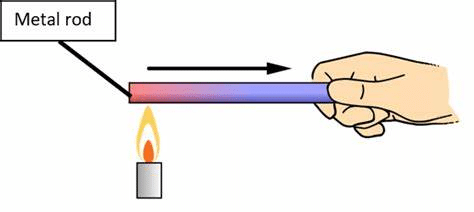
Convection (Liquids & Gases)
• In liquids and gases, heat moves through rising hot particles and falling cold particles.
• Example: Boiling water in a pan shows upward movement of hot water and downward movement of cold water.
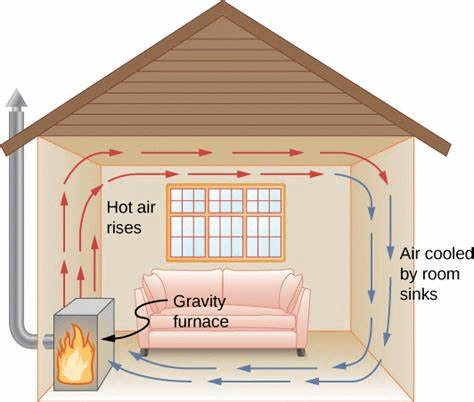
Radiation (Without Medium)
• Heat can also be transferred without any medium in the form of rays.
• Example: Heat from the Sun reaches Earth through space by radiation.
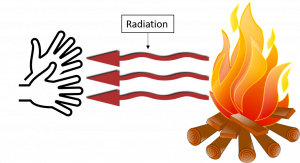
Thus, different materials transfer heat in different ways, and understanding these helps in designing better insulators and conductors.
LAQ
2
Q2: State similarities between the laboratory thermometer and the clinical thermometer.
Answer
Similarities between laboratory thermometer and clinical thermometer are :• Both are used to measure temperature.
• Both typically use mercury or digital technology to display readings.
• Both require careful handling to ensure accurate readings.
• Both thermometers have a scale marked in degrees Celsius.
LAQ
3
Q3: Why do coastal areas experience land breeze and sea breeze?
Answer
In coastal areas, the movement of air between land and sea causes land breeze and sea breeze.1. Sea Breeze (Daytime)
• During the day, the land heats up faster than the sea.
• The air above the land becomes hot and rises, while cooler air from the sea moves in to take its place.
• This movement of air from the sea to the land is called sea breeze.
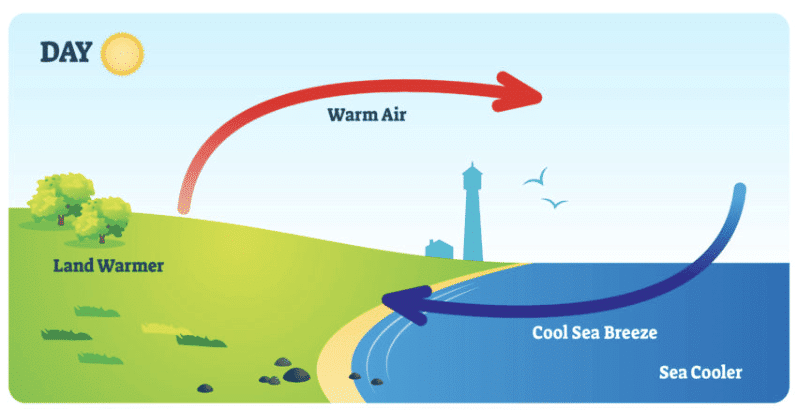
2. Land Breeze (Nighttime)
• At night, the land cools down faster than the sea.
• The air above the sea remains warmer and rises, and the cooler air from the land moves towards the sea.
• This movement of air from the land to the sea is called land breeze.
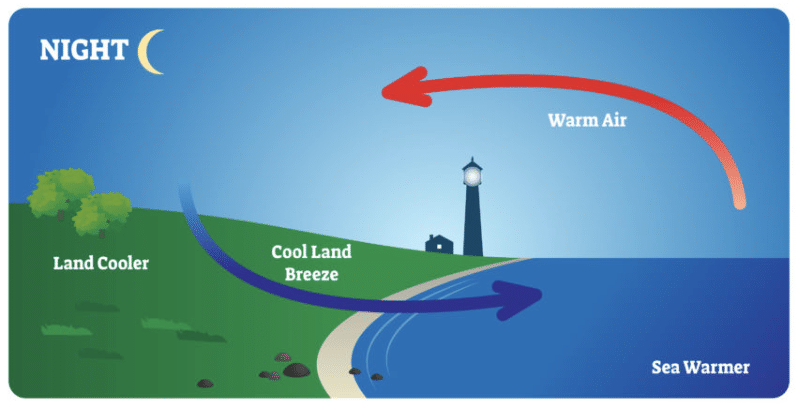
These breezes help moderate temperatures in coastal areas, making them more comfortable.
LAQ